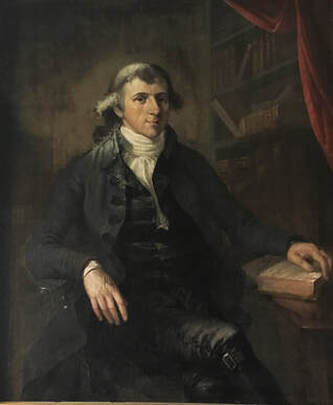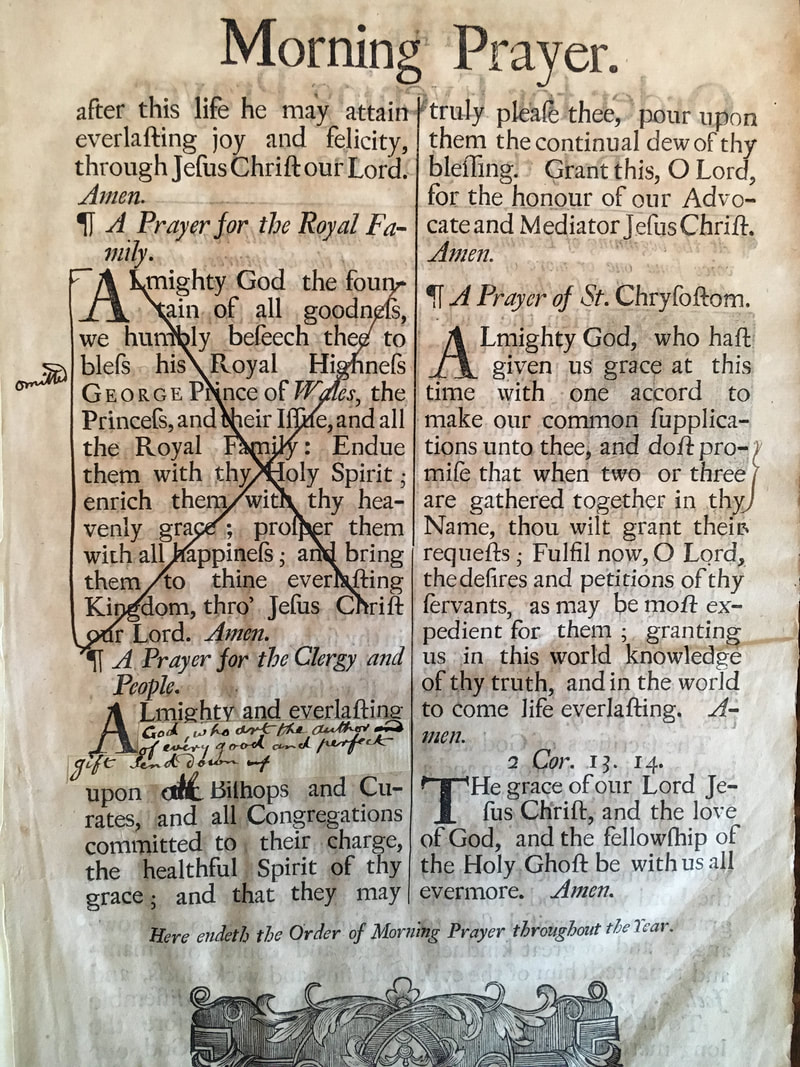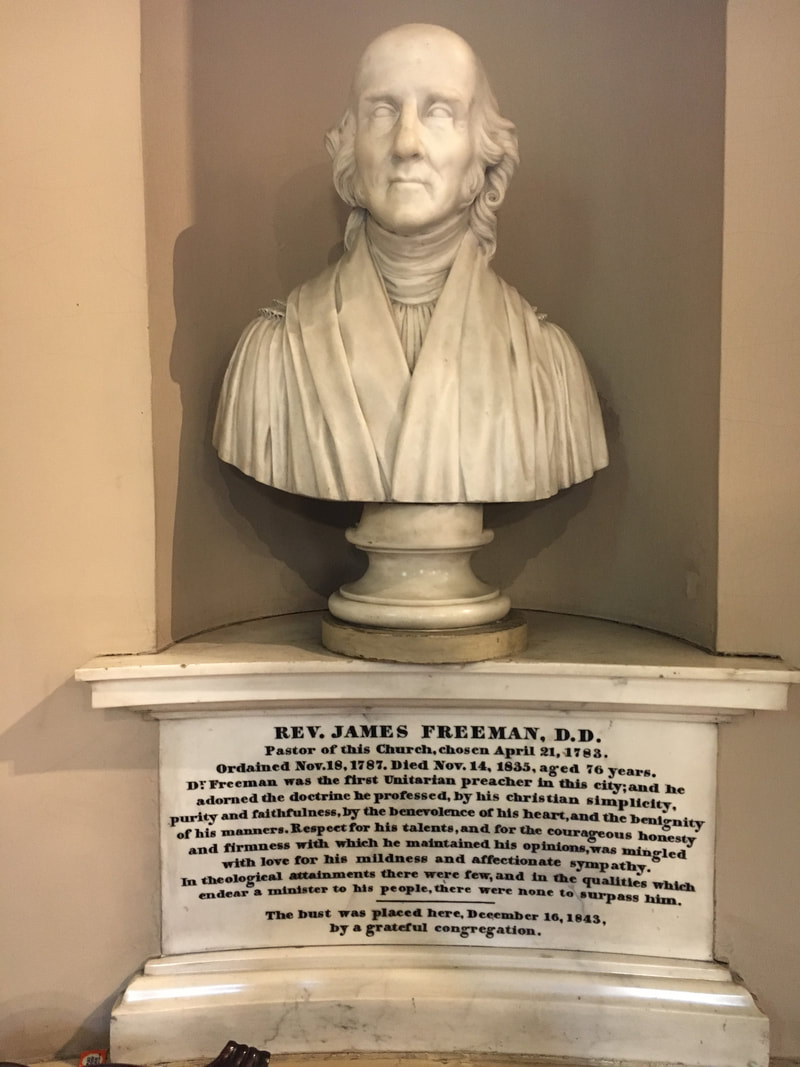Vertical Divider
|
|
James Freeman (1759-1835) served King’s Chapel from 1782 until the time of his death in 1835, starting as a lay reader before the congregation officially declared him minister in a lay ordination in 1787. He led the church through a period of rebuilding, after many members and the church’s Anglican minister the Reverend Henry Caner left Boston leading up to the American Revolution. He also, through important writing, set the stage for them to become an independent church after separating from the Church of England following the formation of the United States.
In a 1782 letter sent to his father, soon after he accepted the post at King’s Chapel, Freeman writes: “I have imbibed no High Church notions. I have fortunately no temptations to be bigoted, for the proprietors of the Chapel are very liberal in their notions. They allow me to make several alterations in the service, which liberty I frequently use. We can scarcely be called of the Church of England, for we disclaim the authority of that country in ecclesiastical as well as in civil matters…” This letter foreshadows the changes to occur during Freeman’s tenure at King’s Chapel. James Freeman and the church’s prayerbook committee changed their historically Anglican liturgy - the Book of Common Prayer - to reflect their burgeoning Unitarian beliefs, and used this opportunity to attempt further reforms in the developing American Episcopal Church. Certain edits Freeman made to the Book of Common Prayer aligned with changes being made elsewhere; for example, churches throughout the new United States eliminated prayers for the monarchy, replacing them with prayers for the President and Congress. King’s Chapel initially thought they would not have to break from the Episcopal churches. However, James Freeman had made other changes to the prayer book as well. Freeman crossed out passages of the prayer book and reworded entire sections, and he had modified services so to remove trinitarian language that did not come directly from scripture. He must have presented his ideas quite eloquently and used the mindset of independent thought and individuality that had been fostered by the American Revolution to his favor, for although there were certainly dissenters among his congregation, for the most part, the members of King’s Chapel were on board with these changes, voting to adopt his version of the prayer book by 1785. But others throughout the country no longer viewed King’s Chapel as an Episcopal church. James Freeman prepared to forge forward, even without an official ordination. In a 1786 letter to his father, Freeman wrote about King’s Chapel’s decision to move forward with a lay ordination, meaning no ordained clergy would be present. This excerpt can be read below. Indeed, this turned out to be the only option available to Freeman. In 1787, the people of King’s Chapel held a lay ordination to elect James Freeman as their minister. In doing so, King’s Chapel became an independent church and the first official Unitarian congregation in the country. Today, King’s Chapel uses the ninth edition of Freeman’s edited text; the same words with which he introduced these changes in 1785 remain as a preface in this modern edition. |
Read James Freeman's writings:
Excerpt from the 1785 prayer book preface, acknowledging how the Revolution affected religion in the United States :
“The late happy revolution here hath forever separated all the Episcopal Societies, in the United States of America, from the Church of England, of which the King of that country is the supreme head, and to whom all Archbishops, Bishops, Priests, and Deacons of that Church are obliged to take an oath of allegiance and supremacy, at the time of their consecration or ordination. Being torn from that King and Church, the Society for whose use this Liturgy is published, think themselves at liberty, and well justified even by the declarations of the Church of England, in making such alterations…”
October 1786 letter to his father, regarding plans if he is not ordained by an Episcopal Bishop:
“Should Provost refuse to ordain me, I shall then endeavor to effect a plan which I have long had in my head, which is to be ordained by the Congregational ministers of the town or to preach and administer the ordinances without any ordination whatever. The last scheme I most approve; for I am fully convinced that he who has devoted his time to the study of divinity, and can find a congregation who are willing to hear him, is, to all intents, a minister of the gospel; and that, though imposition of hands, either of bishops or presbyters, be necessary to constitute him priest in the eye of the law in some countries, yet that in the eye of Heaven he has not less of the indelible character than a bishop or a patriarch.”



